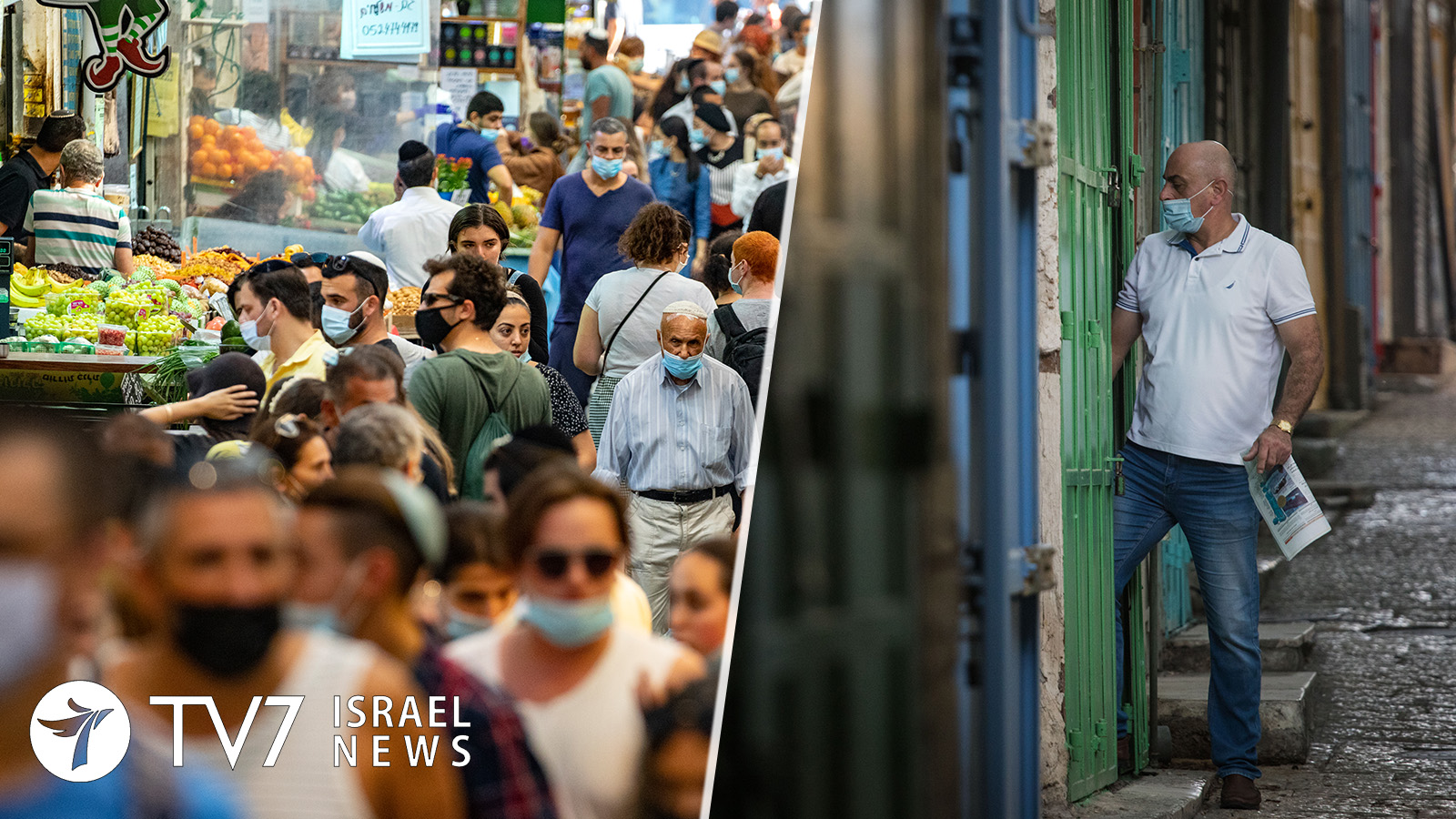Israel’s Coronavirus Cabinet has approved the reopening of some stores this coming Sunday, 8 November. This, as part of the gradual lifting of measures to inhibit further spreading of COVID-19 as the country emerges from its second nationwide lockdown.
Shops on the streets of “green cities” rejoin the economy in accordance with “purple tag” Health Ministry regulations, that for the time-begin limit the number of customers to enter each site to four.
Malls are expected to remain closed until 15 November, and the status of street stores in “red cities” has yet to be announced.
Reported objections to the reopening plan by the Minister of Health Minister Yuli Edelstein, Social Equality Minister Meirav Cohen and Economy Minister Amir Peretz were overruled. Edelstein has repeatedly expressed concern that it is too early for the retail sector to resume operations, amid Health Ministry qualms the move could instigate a delay of implementing the third phase of exit strategy. According to its proposed outline, 5th, 6th, 11th and 12th grade students would return to school, as 1rst and 2nd graders will resume learning in normal class sizes as opposed to the “pods” in which they been restricted to meeting until now.
At its Wednesday meeting, the Coronavirus Cabinet also greenlighted the proposal submitted by Education Minister Yoav Gallant and Minister of Immigration and Absorption Pnina Tamano-Shata to permit thousands of children who recently immigrated to Israel to resume classroom study in small groups, as they have yet to acquire proficiency in Hebrew to participate in distance learning.
Strongly in favor of the store reopenings were Public Security Minister Amir Ohana, Transportation Minister Miri Regev, Interior Minister Arye Deri and Finance Minister Yisrael Katz, who tweeted that: “Small business owners are at the forefront of the economic struggle in coronavirus and have paid very high prices due to the restrictions imposed.” The Finance Minister, who had wanted the street shops to reopen last week, stressed that the government is “committed to doing everything possible to enable them to return to work,” and expressed confidence that “the business owners and their employees will adhere to the guidelines.”
The latest easing of restrictions is unfortunately accompanied by a frightening resurgence of the disease. National Security Council Director General Meir Ben-Shabbat warned that the infection rate is currently is 0.88, while the last time he provided an update it had been 0.69. According to the Health Ministry, 2% of all people currently being screened for COVID-19 are testing positive.
This, as Coronavirus Cabinet Commissioner Prof. Ronni Gazmu warned that the latest data shows movement and activity levels of the Israeli population has returned to nearly identical pace as prior to the month-long lockdown to curb the virus enacted 18 September. After noting a drop in the wearing of masks by the public, Gamzu called for increased monitoring and administration of fines through the use of street cameras. He also called for a halt on travel to the West Bank due to a spike of infections being brought into the country from the Palestinian Authority, and suggested testing of the 5,000 Palestinian workers who enter the country each day.
838 new coronavirus cases were diagnosed just one day before the latest government decision to relax anti-COVID-19 measures.
Today the Health Ministry said 754 new coronavirus cases were confirmed, and that close to 37,000 tests conducted showed an 0.92 positivity rate. There are currently 9,406 active cases, with 353 patients hospitalized in serious condition with 154 on ventilators. 2,597 Israelis have died of the coronavirus since the pandemic began.
Acknowledging the rise in morbidity, Israeli Prime Minister Benjamin Netanyahu issued a statement reaffirmed that, as promised, street shops will open on Sunday. He also cautioned, however, that “if we will see at the end of next week that there is an increase, we will have to stop and maybe even tighten the restrictions.”
“We are not going to wait for 1,500 patients. We suggested at one time a night curfew and other things. We need to accept the principle that we are knowingly crossing the line,” Netanyahu said.
Meanwhile, the Knesset shelved voting on new legislation to double fines for violations of Health Ministry regulations, after lawmakers agreed to wait until the ultra-Orthodox Jewish parties – whose communities have allegedly defied the restrictions – are able to discuss the matter with the Prime Minister, to whom they are aligned.
In other parliamentary developments related to the coronavirus and the economy, the Knesset Constitution, Law and Justice Committee approved a new, so-called “Island Law,” to designate certain popular tourist destinations, such as Eilat and the Dead Sea, as “green cities” to which tourism would be permitted after meeting specific criteria. The bill passed committee vote despite objections from the Health Ministry.
